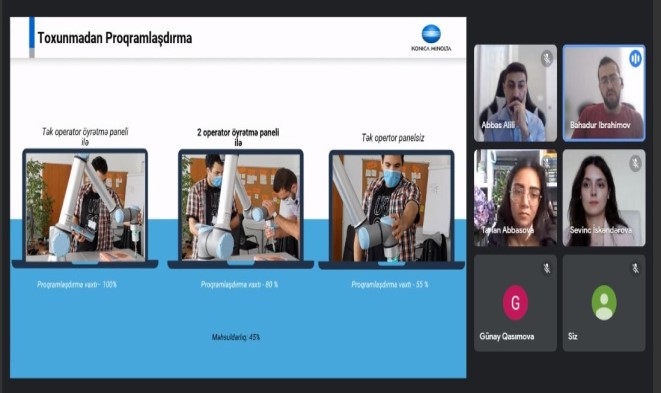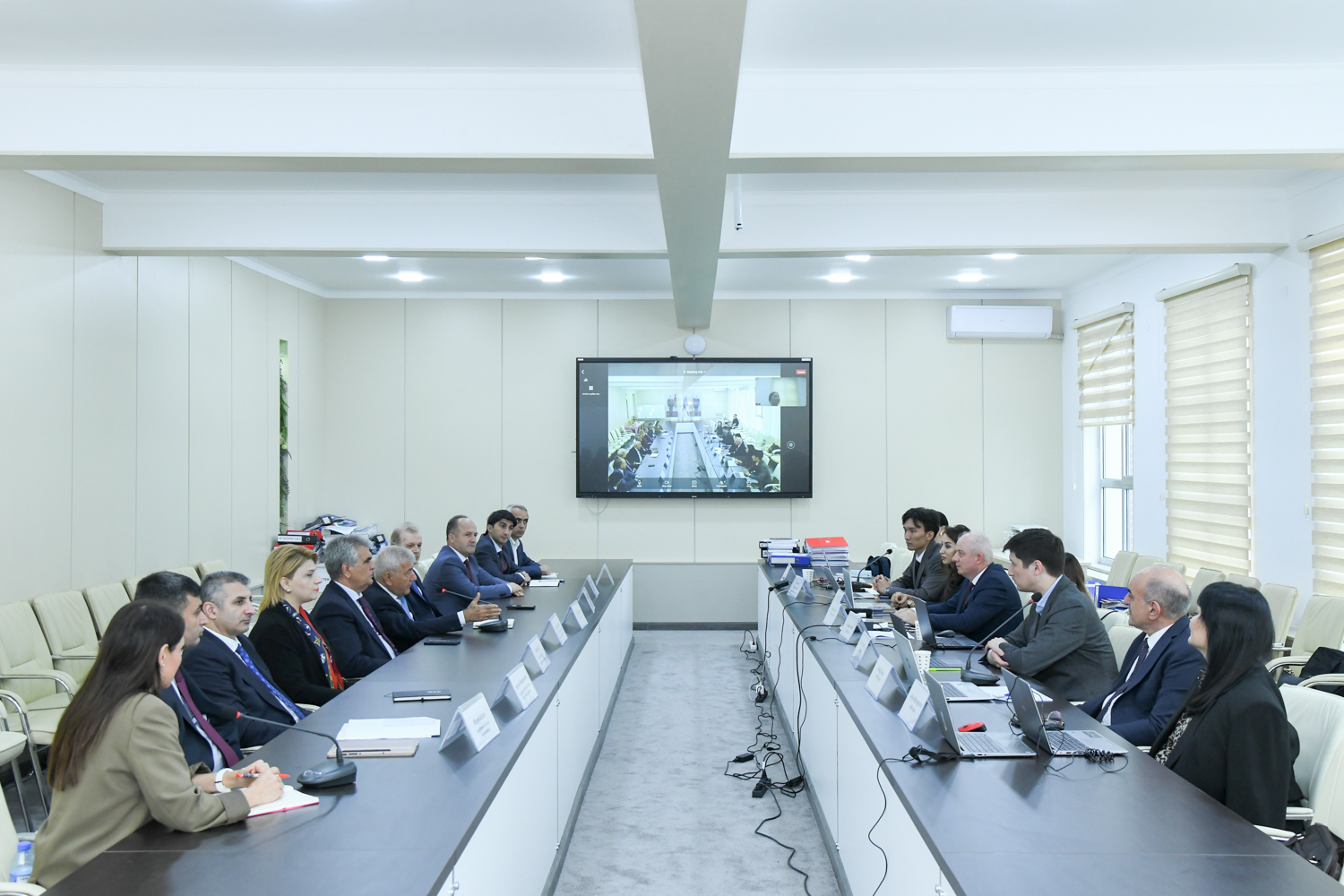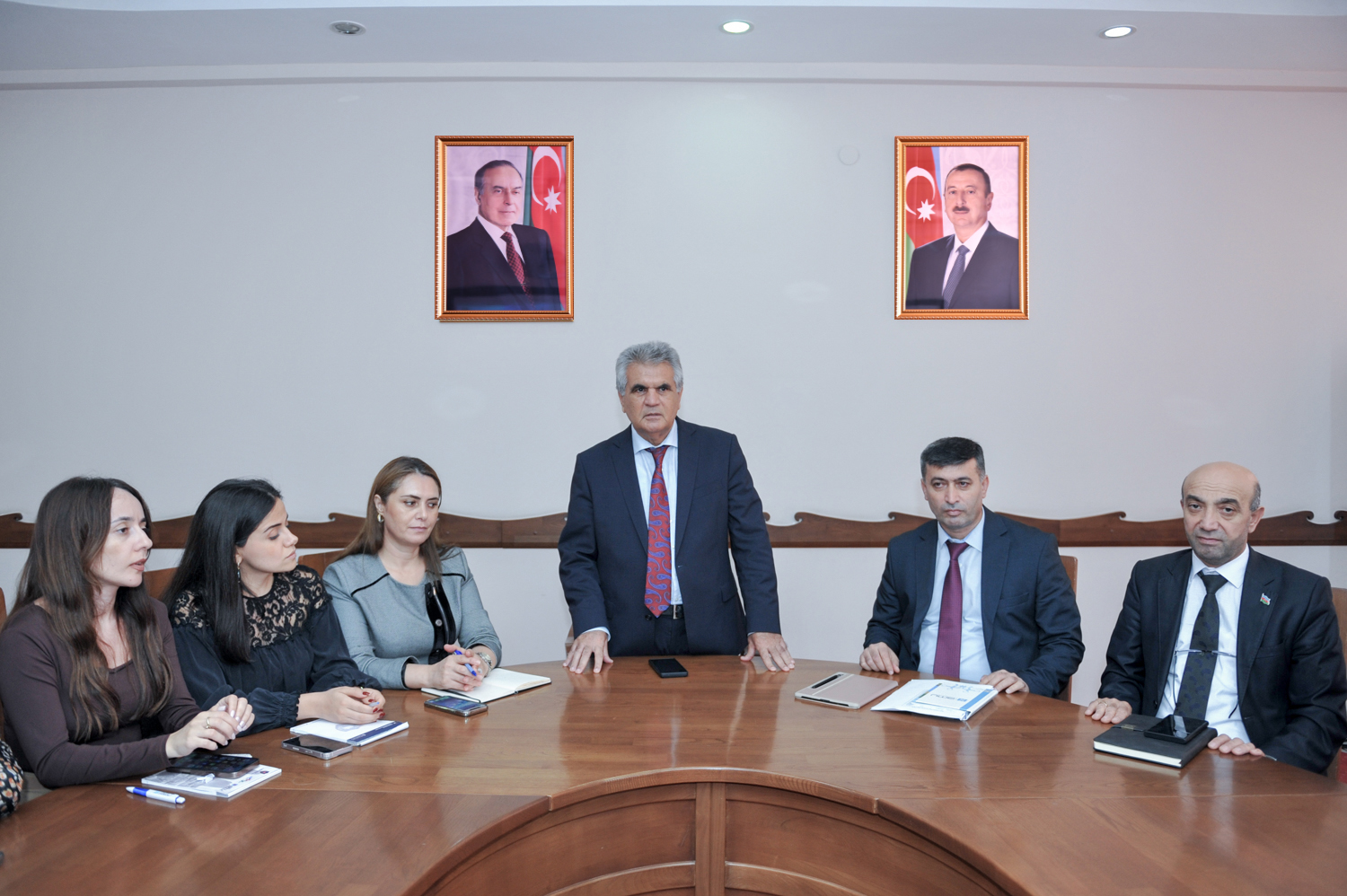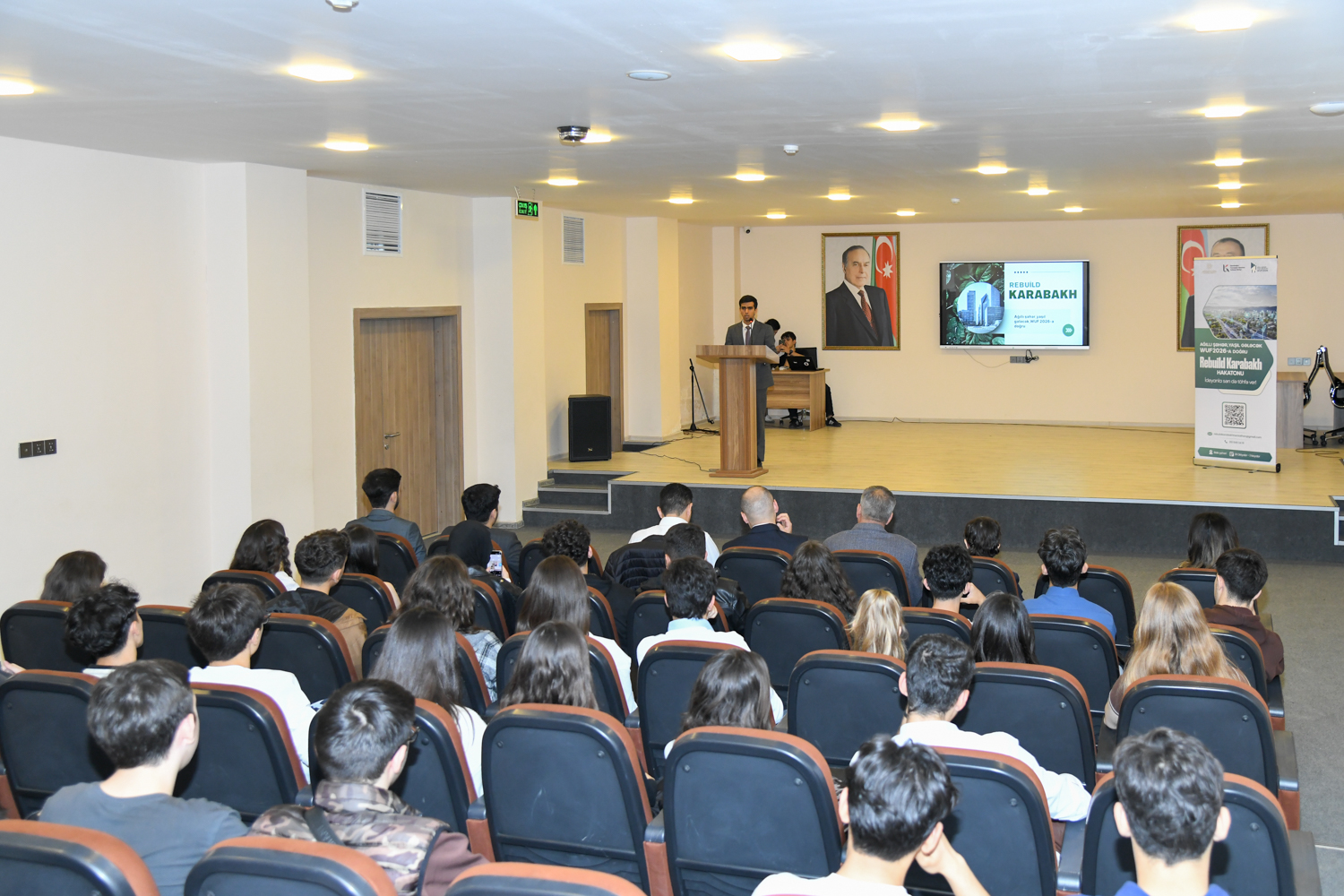Webinar on "New Trends in Electronics Engineering: Bioelectronics and Cobots" held
01 Jul 2021.jpg)
Baku Engineering University (BEU) and the “State Program 2019-2023” have jointly organized a webinar on "New trends in electronics engineering: Bioelectronics and Kobots" to promote engineering specialties in the country.
The webinar aims to discuss the future prospects of electronics engineering, as well as to provide detailed information on admission to the international dual degree program in Electronics Engineering at the undergraduate level of higher education by BEU and Inha University of the Republic of Korea.
The webinar was moderated by Tarlan Abbasova, a dual degree program specialist at the State Program Management Group. He gave general information about the "State Program to increase the international competitiveness of the higher education system in the Republic of Azerbaijan for 2019-2023", the establishment of international double degree programs in priority areas for the country's economy between the world's leading universities and Azerbaijani universities.
The first speaker was Abbas Alili who had 4 years of experience as a Senior Lecturer in Digital Electronics, Process Control for Engineers, Microcontrollers, and Control of Mechatronic Systems, 2 years as Head of the “Internet of Things” Laboratory, as well as who is currently pursuing his PhD. degree in “Electrical and Computer Engineering” specialty at North Carolina State University. He made a presentation on "Bioelectronics and wearable biosensors". He noted that bioelectronics was a very large field where new information processing systems and devices were created using biological materials and architectures. In his speech, A.Alili spoke about the fields of bioelectronics, the greatest requirements for biosensors, the composition of biofluids, as well as sensors worn on the epidermi.
Then Bahadur Ibrahimov, the founder and director of Azerbaijan Robotics and Automation Society, who had 3 years of experience as a program manager on robotics, made a presentation on "Cobots: Electronics, Robots and New Trends." He spoke about the Japanese company “Konica Minolta”, which had 45,000 employees worldwide. B.Ibrahimov noted that with the development of electronics, a new era of robots began. Speaking about the history of industrial robots, the speaker noted that industrial robots reduce production costs, increase accuracy and productivity. Moreover, he also provided information on robot programming, collaborative robots and their advantages, universal robots and their advantages, non-woven economy and non-woven programming caused by the COVID-19 pandemic.
Sevinj Isgandarova, chief specialist of the BEU-INHA dual degree program, reminded that the program was launched last academic year. Noting that the program was based on the 3 + 1 model, S. Isgandarova said that the admission was carried out in 4 specialties, and the program envisaged the admission of 100 entrants in total. She noted that entrants must collect the appropriate passing score for each specialty in the exam organized by the State Examination Center (SEC). Applicants must then successfully pass an oral English and subject competition (mathematics and physics) organized by BEU and Inha University. S.Isgandarova added that the exams were conducted by Korean professors.
S.Isgandarova stressed that the "State Program 2019-2023" covered the tuition fees, registration costs, access to teaching materials and electronic information resources, as well as the cost of 1-year education and 3-week summer school in South Korea. She noted that students would be taught Korean language classes at BEU for a period of 3 years to develop relevant language skills, and they would take exams in the 2nd and 3rd academic years to obtain a "TOPIK" certificate, respectively. Students who successfully pass the exams will continue their education in Korean at Inha University in South Korea in the 4th academic year.
S. Isgandarova said that along with the students, the University's academic staff would be sent to South Korea for 2 consecutive years in each specialty during the program and would be trained at Inha University.
Public Relations Department



